BEZPIECZNIE PRZESUWAM GRANICE
Dyrektor Narodowej Orkiestry Symfonicznej Polskiego Radia, Ewa Bogusz-Moore, nie boi się wyzwań ani zmian. Doświadczenie w zarządzaniu kulturą i świeże spojrzenie na to, czym dzisiaj jest i może być muzyka, pozwala jej odkrywać z NOSPR-em nowe, nieodkryte jeszcze obszary.
Tekst: Beata Brzeska
Zdjęcia: Adrian Błachut
Zawsze, kiedy jestem w budynku NOSPR-u, na nowo mnie zachwyca i cieszę się, że jest. Pani od roku jest tu prawie codziennie. Czy ten zachwyt mija?
Nie, to nie mija. Ostatnio weszłam na salę koncertową, kiedy muzycy akurat wychodzili z prób. Zapytałam jednego z nich, o to samo, czy zachwyt nad graniem tutaj mija, a on odpowiedział z uśmiechem: Nie, pani dyrektor, nie mija. Zdecydowanie jest tu coś magicznego. Nie chodzi tylko o salę koncertową, ale o cały budynek. Moim ulubionym zajęciem, kiedy chcę nieco ochłonąć, jest spacer wokół budynku i obserwowanie jak zmienia się pod wpływem światła, pory dnia. On naprawdę żyje własnym życiem.
W przyszłym roku mija pięć lat od otwarcia nowej siedziby. Z tej okazji Yasuhisa Toyota, odpowiedzialny za wspaniałą akustykę, zagości w Katowicach.
Trzeba coś poprawić?
Chodzi raczej o dostrojenie, bo ta sala jest jak instrument: oddycha, zmienia się, orkiestra
wciąż uczy się, jak ta przestrzeń reaguje, co się dzieje z dźwiękiem. Dlatego zaprosiliśmy pana Toyotę, żeby zobaczył, jak ten nasz instrument się rozegrał i, jeśli trzeba, skorygował pewne rzeczy.
Od kwietnia tego roku NOSPR należy do grona 22 najbardziej wpływowych instytucji muzycznych w Europie – European Concert Hall Organisation. Z naszej części Europy jest jeszcze jedynie Budapeszt. To ogromne wyróżnienie i zapewne
także nowe możliwości.
Tak, to otwiera nowe możliwości w wielu obszarach. Po pierwsze, jesteśmy w gronie naprawdę wielkich graczy świata muzyki klasycznej. Po drugie, to wspaniała płaszczyzna wymiany doświadczeń i tworzenia wspólnych projektów. To również wspólny namysł nad tym, dokąd zmierzamy i gdzie jest przyszłość muzyki, edukacji muzycznej, nad tym, kto ma dobre, warte powielenia wzorce, ale też nad tym, co komu nie wyszło. Bardzo sobie cenię właśnie to dzielenie się porażkami, bo dzięki temu nie powielamy błędów. Dlatego dostanie się do ECHO jest trudne, bo członkostwo jest oparte nie tylko na infrastrukturze i poziomie artystycznym, ale też na zaufaniu i wspólnych ideałach.
Była pani wiolonczelistką, a od lat zarządza kulturą. Połączenie tych dwóch światów – emocji i ekonomii – tworzy wartość dodaną, czy zmusza do nieustannych kompromisów?
Nie nazwałabym tego kompromisami. Wyznaję taką teorię, że jeśli mamy lecieć na Księżyc, to musimy wiedzieć, jak zbudować rakietę. Samo patrzenie w niebo nas tam nie zaprowadzi. Musimy rozmawiać o finansach, musimy racjonalizować działania, żeby realizować zamiary i pomysły. Dla mnie to są naczynia połączone i nie czuję, żeby rozmawianie o finansach ograniczało marzenia. Wręcz przeciwnie.
Połączenie misji i celów biznesowych jest możliwe i bezbolesne?
Zdecydowanie tak. Jeśli skupiłabym się tylko na marzeniach i nie myślała o finansach, to pewnie szybko by się to na mnie zemściło. To są dwie siły, które nieustannie obserwuję, patrzę, jak się zachowują i zmieniają. To jest współistnienie, a nie rywalizacja czy antagonizm. Jednak gdybym nie miała pojęcia, jak to wygląda z pozycji kogoś, kto wychodzi na scenę, to nie miałabym pełnego obrazu i byłoby mi ciężko znaleźć wspólny język z muzykami.
Jestem w stanie łączyć te dwie przestrzenie, sztuki i biznesu. Na studiach zawsze czułam się lepiej z nauczycielami, którzy przed wyjściem na scenę nie mówili o technice czy artykulacji, ale przypominali, żeby być sobą i przekazywać swoje emocje. Jako osoba, która kieruje instytucją kultury, chcę tworzyć przestrzeń, w której artyści czują się komfortowo i mogą dać z siebie to, co najcenniejsze. Znajomość potrzeb i specyfiki tych dwóch stron bardzo pomaga.

Pierwsze pieniądze, zarobione we włoskiej restauracji, przeznaczyła pani na futerał do wiolonczeli.
Tak (śmiech), mam go do teraz.
Wtedy nie było wątpliwości, obecne wybory pewnie nie są takie oczywiste. Co jest dla pani priorytetem w nakładach na kulturę dzisiaj?
Dla mnie bardzo ważne jest zastanawianie się nie tylko nad tym, co jest tuż przed, ale myślenie o tym, co jest daleko na horyzoncie i dokąd idziemy. Gdybyśmy w muzyce żyli tylko tu i teraz, to pewnie część inwestycji prowadziłaby w ślepe zaułki i trwalibyśmy w martwym punkcie. Chcąc być instytucją, która wytycza nowe kierunki, musimy mieć odwagę, żeby podejmować ryzyko, nawet jeśli czasami popełnimy błędy. Niektóre wybory są trafione, inne mniej, ale to nie znaczy, że nie powinniśmy szukać. Ktoś kiedyś ładnie powiedział, że do celu dochodzi ten, kto nie wie, dokąd chce dojść. Wydaje mi się, że w tym jest duża mądrość. Wytyczając sobie sztywne cele, ograniczamy się. Trzeba być elastycznym. Kultura, muzyka, cały czas się przeobraża. I nawet jeśli od wieków gramy Beethovena, to za każdym razem odbiór i przekaz jest inny. To jest wpisane w DNA kultury.
Jest pani perfekcjonistką, porzuciła wiolonczelę, bo jak mówi, nigdy nie osiągnęłaby wirtuozerii Yo-Yo My. Choć tego przecież nie było wiadomo…
(śmiech) Było, było.
Takie podejście do pracy da się pogodzić z elastycznością, zgodą na niepowodzenia?
Oczywiście, że tak. Perfekcjonizm to dążenie do tego, by zrobić wszystko najlepiej, jak to jest możliwe. Ma pani trudne zadanie, bo zarządzając NOSPR-em realizuje aż trzy misje, oczekiwania trzech patronów tej instytucji: Ministerstwa Kultury i Dziedzictwa Narodowego, Polskiego Radia i miasta Katowice. Tak, ale to daje ciekawą dynamikę. Czasami rzeczywiście każda z tych stron ma nieco odmienne priorytety, ale z punktu widzenia organizacji, instytucji, widowni, ta konieczność wypracowywania równowagi pomiędzy trzema stronami jest bardzo dobra. Nie ma poczucia nadmiernej wygody, co moim zdaniem, jest bardzo pobudzające i inspirujące. Ten trójkąt zmusza do stałego poszukiwania swojej drogi, zmiany akcentów i elastyczności poprzez nieustanne korygowanie zamierzeń i pomysłów. I to jest bardzo dobre.
Słynny piórnik z kolorowymi kredkami, którymi rysuje pani plany i strategie, bardzo się przydaje.
Tak, bardzo (śmiech). Mówiąc NOS PR, mówimy o orkiestrze, ale też o budynku, przestrzeni oddanej lokalnej śląskiej społeczności. To, że jesteśmy instytucją narodową wyznacza oczywiście kierunek, jesteśmy ambasadorem polskiej muzyki, i dlatego nie jest
przypadkiem, że gramy dużo muzyki polskiej i współczesnej. Muzyka współczesna również jest naturalnym wyborem, jesteśmy na Śląsku, a to przecież ojczyzna Góreckiego i Kilara. Lutosławski natomiast uwielbiał tę orkiestrę do tego stopnia, że zawsze ją prosił o tzw. pierwsze czytanie. Jako orkiestra radiowa, mamy tradycję sięgającą lat 30. XX wieku, kiedy
powstawały takie orkiestry i ich zadaniem było popularyzowanie muzyki klasycznej. Koncerty transmitowane na żywo, nagrywanie płyt, prezentowanie nowej muzyki – to wszystko nadawało ton życiu muzycznemu. Do dziś jest to dla nas bardzo ważne i kontynuujemy te tradycje, korzystając oczywiście z nowych technologii. Świat się zmienia i musimy szukać nowych połączeń.
Połączeń pomiędzy muzyką i otaczającym nas światem?
Nowy festiwal Muzyka+Nauka, powołany w zeszłym roku, był takim poszukiwaniem. Zastanawialiśmy się nad Kosmosem, czy jest tam muzyka, jak mogłaby brzmieć.
W tym roku odbędzie się kolejna edycja, a tematem wiodącym będzie sztuczna inteligencja – jej wpływ na muzykę i szerzej – na otaczające nas dźwięki. Pomysł się sprawdził. Badania przeprowadzone podczas poprzedniej edycji festiwalu pokazały, że 30 procent publiczności
było u nas pierwszy raz! Są ogromne przestrzenie, w których możemy działać i zachęcać ludzi do słuchania muzyki. Budowanie takich pomostów pomiędzy codziennością i otaczającymi nas technologiami a sztuką i muzyką, przyciąga nową publiczność. Komuś, kto nie ma wykształcenia muzycznego, nie jest łatwo trafić do NOS PR-u, barier jest dużo, a jedną z nich jest obawa przed muzyką trudną, niezrozumiałą. A przecież każdego dnia jesteśmy otoczeni masą różnych dźwięków, w których jedni słyszą hałas, a drudzy inspirację do tworzenia muzyki. Wystarczy to pokazać, uświadomić.
Jaka jest publiczność NOSPR-u?
Muszę powiedzieć, że ten region jest wyjątkowy, jeśli chodzi o stałą, tzw. abonamentową publiczność. Ewenementem jest to, że musimy ograniczać sprzedaż abonamentów, bo popyt jest ogromny. Rzadko się widzi miejsca, z którymi publiczność jest tak emocjonalnie związana. Ślązacy są dumni z NOS PR-u. To marzenie każdego dyrektora mieć publiczność, która reaguje na każdą zmianę, ma opinię o tym, co się dzieje. Publiczność, z którą można rozmawiać. My taką właśnie publiczność mamy.

Powiedziała pani w jednym z wywiadów, że w naturze ma eklektyzm i łamanie stereotypów. To się pokrywa z tym, czego oczekuje publiczność?
Mam duży szacunek do tradycji i ją rozumiem. Jestem klasycznie wykształconą wiolonczelistką. To jest ważny dla mnie nurt. Równocześnie mam świadomość, że jeśli będziemy grali tylko Czajkowskiego, Beethovena, Dworzaka etc., to ograniczymy naszą publiczność. Jeśli nie zaproponujemy nowego repertuaru, to w końcu nam się ta publiczność wyczerpie, bo ile można słuchać tego samego. W programowaniu z jednej strony bierzemy pod uwagę to, czego publiczność chce słuchać, ale z drugiej strony idziemy troszeczkę dalej i próbujemy przesuwać te granice. Ważny jest w tym procesie ciągły dialog z publicznością. O muzyce poważnej często się myśli, że to świat żyjący rytuałami, i że zawsze taki będzie. Nie będzie. Każdy z nas może powiedzieć, że rok temu był inny. Sposób opowiadania, emocje – wszystko się zmienia. I nie rozumiem, dlaczego akurat muzyka miałaby pozostać w bezruchu, nie reagować na zmiany. Stracimy wtedy możliwość dialogu z publicznością, a muzyka jest dialogiem, chociaż nie używamy słów.
Pomysł na samodzielnie układany karnet daje możliwość takiego dialogu?
Tak, wyszło nam z badań, że są słuchacze, którzy odwiedzają nas szczególnie często i jednocześnie mają bardzo określony gust muzyczny. Dla nich właśnie przygotowaliśmy możliwość stworzenia swojego karnetu, dzięki któremu zyskują szereg korzyści. Oprócz tego mamy abonamenty, które są taką wisienką na torcie. Kupowane są przez melomanów, którzy tak kochają NOS PR, że nie boją się przychodzić na wszystkie koncerty orkiestry w sezonie, bez względu na repertuar. Staramy się odpowiadać na różne potrzeby naszych słuchaczy, żeby każdy mógł przeżywać tę muzyczną podróż po swojemu.
Nowy sezon, który właśnie się rozpoczął, jest już w większym stopniu, niż poprzedni, ukształtowany przez panią. Objęła pani kierownictwo NOSPR-u rok temu, a wiadomo, że sezony planowane są z dużym wyprzedzeniem. Elastyczny karnet to tylko jeden z pani pomysłów.
Tak, ale to bardziej techniczne rozwiązanie. Z programowych pomysłów to np. koncerty familijne rejestrowane dla TVP Kultura. To nasz pomysł na wspólną, wielopokoleniową muzyczną rozrywkę. Świadomie mówię o rozrywce, wbrew powszechnemu traktowaniu jej jako czegoś błahego, nieistotnego. Opowiadamy muzyką historie, gramy fragmenty słynnych utworów, dwóch animatorów prowadzi dialog z publicznością, angażuje do odkrywania muzyki i bawienia się nią. Pierwsze dwa koncerty okazały się strzałem w dziesiątkę. Bilety sprzedaliśmy w godzinę!
Jaki wpływ na nowy sezon ma nowy dyrektor artystyczny NOSPR-u, Lawrence Foster?
Bardzo duży. Program jest wypadkową naszych rozmów, dyskusji i pomysłów na to, co chcielibyśmy przedstawić naszej publiczności, co powinna poznać. To także zastanawianie się nad tym, jaki program pozwoli orkiestrze się rozwijać. Orkiestra jest żywym organizmem, potrzebuje wyzwań, które pozwolą jej wejść na wyższy poziom. Lawrence Foster jest idealną osobą i bardzo ważnym elementem tej układanki; pracuje z orkiestrą i wie, czego ona potrzebuje. Wyznacza orkiestrze kolejne ośmiotysięczniki do zdobycia.
Jakie ośmiotysięczniki będą w tym sezonie?
Pierwszy już za nami – monumentalne War Requiem Benjamina Brittena, którym rozpoczęliśmy sezon. Lawrence jest bardzo zainteresowany przedstawianiem muzyki w większych cyklach. Dlatego podczas dwóch styczniowych koncertów zabrzmią wszystkie symfonie Roberta Schumanna, połączone z obydwoma koncertami fortepianowymi Ferenca Liszta. Lawrence Foster znakomicie czuje się również w muzyce operowej, której orkiestry symfoniczne z reguły nie wykonują tak często. Dlatego na finał sezonu przygotowujemy estradowe wykonanie Godziny hiszpańskiej Maurice’a Ravela. Będzie również obecny Gustav Mahler i jego VI Symfonia a-moll Tragiczna pod batutą Dominga Hindoyana. Gramy Brucknera, Dworzaka i oczywiście Beethovena, którego 250. rocznica urodzin przypada w nadchodzącym roku. Mamy też smaczki dla poszukiwaczy i odkrywców nowych obszarów muzyki, którzy nie boją się zaryzykować.
Objęcie kierownictwa w NoSPR to ogromne wyzwanie i spełnione marzenie menadżera kultury. Gdzie widzi się pani za kilka, kilkanaście lat?
Nic nie jest na zawsze. Moje bycie w NosPr-ze (oby trwało jak najdłużej!), dla instytucji będzie tylko pewnym okresem w historii. Wszystkie decyzje, jakie podejmuję, poprzedzone są pytaniem: Gdzie ta instytucja ma być za parę lat, ze mną czy beze mnie? Nie można myśleć w perspektywie kadencyjności, krótkofalowo. Musi być długa perspektywa. Na teraz bardzo się cieszę, że Simon Rattle przyjechał do nas i zachwycił się NosPr-em. Chciałabym jednak, żeby już nie trzeba było odkrywać tego miejsca, żeby każdy wiedział, że jest i jakie jest. Wizerunek orkiestry i wiedza o tym, co robimy, jest ugruntowana. moim zdaniem teraz jest ten moment, żeby NosPr zaczął promieniować. Nie tylko przyjmował zachwyty, znakomitych gości, odtwarzał, ale jako instytucja kreatywna, dyktował nowe warunki, proponował ciekawe i innowacyjne rozwiązania, projekty, pomysły. Na trwale i w nowoczesny sposób wpisał się w międzynarodową mapę znaczących instytucji kultury.
Trzy przymiotniki, które chciałaby pani, żeby kojarzyły się z NoSPR-em w Europie i na świecie, to…
Kreatywność, innowacyjność i jakość.
Za panią pierwszy sezon. To właściwie, można powiedzieć, dopiero rozgrzewka.
To był dla mnie bardzo intensywny i ważny rok, pełny, czasem nieoczekiwanych, wyzwań. to jest zupełnie inna dynamika w porównaniu z instytucjami, którymi zarządzałam wcześniej. sam zespół liczy ponad 200 osób. Nie da się niczego zrobić samemu, wszyscy musimy wierzyć, że idziemy w dobrym kierunku. to było chyba najciekawsze doświadczenie tego mojego pierwszego roku dyrektorowania. Dużo udało nam się zrobić. z optymizmem patrzę w przyszłość.
![]()
GENTLY SHIFTING BOUNDARIES
The director of the Polish National Radio Symphony Orchestra, Ewa Bogusz-Moore, is not afraid of a challenge or change. Her experience in cultural management and fresh take on what music is and could be, has allowed her to discover new horizons for the orchestra.
Text: Beata Brzeska
Photos: Adrian Błachut
Every time I visit the building of the NOSPR I am delighted to be here. You’ve virtually been here every day for the past year. Does the excitement ever die down?
No, it doesn’t. Recently I entered the concert hall when the musicians were coming out of rehearsals. I asked one of them the same thing – whether the love of playing here ever waned – and he replied that it didn’t. There is something magical here. It’s not just the concert hall, but the entire building. When I need a break, I love to walk around the building and see how it changes in the light at different times of day. It has its own life.
Next year will be the 5th Anniversary of the opening of the orchestra’s new home. Yasuhisa Toyota, who is responsible for the great acoustics, will be visiting Katowice. Does anything need to be improved?
It is more about fine-tuning, because this hall is like an instrument – it breathes and changes. The orchestra is still figuring out how this space reacts and what happens to the sound. That is why we invited Mr. Toyota to see the shape our ‘instrument’ is in and, if necessary, to correct some things.
Since April this year, NOSPR belongs to a group of the 22 most influential musical institutions in Europe – the European Concert Hall Organization. Budapest is the only other city from our part of Europe. This is a great distinction. Surely that
brings with it plenty of opportunities to explore.
Yes, it opens doors in many areas. First of all, we are now considered to be one of the great ensembles in the world of classical music. Secondly, it is a great platform for sharing experiences and developing joint projects. It also gives us the opportunity for mutual reflection on where we are going and where the future of music lies; the state of music education; who the worthy role models are; as well as what hasn’t worked out. I really value the opportunity to learn from each other’s mistakes, because thanks to that we don’t repeat those mistakes. That is why getting into ECHO is difficult, because membership is not only based on the infrastructure and artistic level, but also on trust and common ideals. You were a cellist and have been involved.
In cultural management for years. Does the combination of these two worlds – the emotional and the economic – bring added value or are you constantly forced to make compromises?
I wouldn’t call it compromise. I’m the kind of person who firmly believes that if you want to fly to the moon, you need to know how to build a rocket. Just staring up at the sky will not get you there. It’s a question of finances, rationalizing activity to implement your plans
and ideas. For me, these things are all interwoven and I don’t think that talking about finance limits dreams. On the contrary.
So there is a painless way of combining one’s mission with one’s business goals?
Absolutely. If I focused only on dreams and didn’t think about our finances, it would probably backfire very quickly. These are two forces that I constantly observe, how they behave and change. It’s a coexistence; not a competition or antagonism. However, if I couldn’t see things from the perspective of a person on stage, I wouldn’t be able to appreciate the full picture and it would be difficult for me to find a common language with our musicians. I am able to combine the two realms of art and business. In college I always felt better with teachers who avoided talking about technique or articulation before stepping on stage, but rather reminded me to be myself and to convey my emotions. As a person who manages a cultural institution, I want to create a space in which artists feel comfortable and can give their all. It really helps to understand the needs and uniqueness of both sides of the coin.

The first money you earned when you worked at an Italian restaurant went towards a cello case.
Yes (laughs), I still have it today.
In those days things would have been lot simpler, whereas today’s choices are no doubt more challenging. What are your priorities when it comes to spending on culture today?
For me it is very important not only to think about what is just ahead, but to think about the long term and where we are headed. If we only thought about the here and now, some of our investments would probably lead to dead ends and we would find ourselves at a standstill. To be an institution that sets new directions, we must have the courage to take risks, even if we sometimes make mistakes. Some choices are right, others aren’t, but that doesn’t mean we shouldn’t try. Someone once said not knowing where you want to go is means you’ve reached your goals. Whoever said that was very wise. We limit ourselves by setting rigid targets. You have to be flexible. Culture and music are constantly changing. And even though Beethoven has been played for centuries, the reception and message are different each time. This is inscribed in the DNA of culture.
You are a perfectionist and abandoned the cello because, as you said, you were never going to achieve the virtuosity of Yo-Yo Ma, although you had no way
of knowing.
(laughs) That was then…
Can you reconcile this with your approach to work, which could be characterized by its flexibility and willingness to fail.
Yes, of course. Perfectionism is the pursuit of doing everything to the best of your ability.
You have a difficult task because, managing the NOSPR, you have to fulfill three missions – the expectations of this orchestra’s three patrons: the Ministry of Culture and National Heritage, Polish Radio and the city of Katowice.
Yes, but it makes for an interesting dynamic. Sometimes, each of these parties has slightly different priorities, but from the point of view of the organization, the institution and the audience, the need to strike a balance between the three parties is actually very good.
We cannot be complacent, which I think is very stimulating and inspirational. This triangle motivates us to constantly try and set a new course; to change accents and to take a flexible approach to what enables you to reassess your goals and ideas. That’s a very good thing.
That famous pencil case with the coloured pencils you use for drawing up your plans and strategies must come in very useful.
Very much so (laughs). When one talks about NOS PR, one isn’t just talking about an orchestra, but also about a building, a space dedicated to the local Silesian community. The fact that we are a national institution obviously sets the agenda. We are an ambassador of
Polish music, and therefore it is no accident that we play a lot of Polish and contemporary music. Contemporary music is also a natural choice, we are in Silesia, and this is the homeland of Górecki and Kilar. On the other hand, Lutosławski loved the orchestra so much that he always asked it for a so-called first reading. As a radio orchestra, we have a tradition that dates back to the 1930s, when such orchestras were first created to popularize classical music. Live concerts, recordings, the presentation of new music – all these things set the musical scene of the times. This is as important to us today as it was then, and we continue this tradition, using new technologies of course. The world is changing and we need to find new ways of connecting.
Connecting music to the world around us?
The new Music + Science festival, established last year, was such an attempt. We were exploring the notion of whether there was sound in space and, if so, what it would sound like. The main theme this year will be artificial intelligence, its impact on music and on the sounds that surround us. The idea has come to fruition. Research conducted during the previous edition showed that 30 percent of the audience had joined us for the first time! We have huge spaces in which to perform and encourage people to listen to music. Building bridges between everyday life, the new technologies, and art and music, attracts a new audience. For someone without musical education, getting involved with NOS PR for the first time can be daunting. There are many barriers, and one of them is the fear of being exposed to difficult and incomprehensible music. Every day we are surrounded by a mass of different sounds, some people simply hear noise and others are inspired to create music. We simply have to open their eyes.
What is the make-up of the NOSPR audience?
I must say that this region is unique when it comes to our so-called subscription audience. We have to limit the sale of subscriptions, because demand is so great. You will rarely find a place to which the audience is so emotionally connected. Silesians are proud of NOS PR.
It is the dream of every director to have an audience that responds to every change and has an opinion about what is going on – an audience you can talk to. We have such an audience.
You one said in an interview that by nature you’re eclectic and into breaking stereotypes. Does that correspond with what the audience should expect?
I have a lot of respect for tradition and I understand it. I am a classically trained cellist and it’s very important to me. At the same time, I am aware that if we only play Tchaikovsky, Beethoven and Dvorˇák, etc., we will limit our audience. If we don’t come forward with a new repertoire, we will eventually lose our audience. I mean, how many times can you listen to the same thing? In programming, on the one hand, we take into account what the audience wants to hear, but on the other hand we go a little further and try to shift the boundaries. Continuous dialogue with the audience is an important part of this process. Classical music is often thought to be a world of ritual and that it always will be. But it won’t. Every one of us can say that a year ago we were different. Our way of communicating, emotions – everything changes. I don’t understand why music will just stand still and not react to change. We will lose the opportunity of maintaining a dialogue with our audience. Music is a dialogue, even though we don’t use words.
The idea of creating one’s own subscription package gives provides the possibility for such a dialogue, doesn’t it?
Yes, it does. It emerged from our research. We discovered that subscriptions are really the icing on the cake for lovers of NOS PR. They’re the ones who are prepared to plan a visit months in advance and come for sure. The others tend to find it difficult to plan that far ahead and that’s why we’ve given them the opportunity to plan their subscriptions themselves. In our publications, we help in making those choices, public figures share their views on what their ideal package would; we talk about the program, the performers, etc. We really want to go on a musical journey with our audience.
You had more of a hand in shaping the new season, which has just begun, than you did the previous year. You took over the leadership of NOSPR a year ago, and
it is known that the seasons are planned well in advance. A flexible season pass is just one of your ideas.
The program ideas I’ve had are, for example, family concerts recorded for TVP Kultura. It’s our idea for joint, multi-generational musical entertainment. Entertainment is commonly held to be something trivial and irrelevant, whereas I consciously talk about it. At these
concerts we tell stories through music, play fragments of famous songs while two animators engage the audience in their discovery and enjoyment of the music. The first two concerts turned out to be a hit. We sold out in an hour!
What influence does the new artistic director of NOSPR, Lawrence Foster, have on the new season?
A huge influence. The program is the result of our conversations, discussions and ideas on what we would like to present to our audience and what they should learn. We also thought long and hard about what kind of program would allow the orchestra to grow. The orchestra is a living organism. It needs challenges that will allow it to reach a higher level. Lawrence Foster is the perfect person to do this and a very important piece in this puzzle. He works with the orchestra and knows what it needs. It gives them new summits to conquer.
What summits will be conquered this season?
The first is behind us – the monumental War Requiem by Benjamin Britten, which opened the season. Lawrence is very interested in presenting music in larger cycles. Therefore, during two January concerts, all Robert Schumann’s symphonies will be heard, combined with both piano concertos by Ferenz Liszt. Lawrence Foster also feels very much at home in operatic repertoire, which symphony orchestras don’t usually perform. that is why we are preparing The Spanish Hour by maurice ravel as the season finale. We will also be presenting gustav mahler’s symphony No. 6 in A minor „Tragic” under the baton of Doming Hindoyan. We’ll play bruckner, Dvorˇák and of course beethoven, whose 250th birthday falls next year. We have special delights for those who wish to explore new areas of music and aren’t afraid to take a risk.
Overseeing NoSPR is a huge challenge and a cultural manager’s dream come true.
where do you see yourself a few from now?
Nothing lasts forever, my time at NosPr (may it last as long as possible!) will only be a small part of its history. All decisions that I make are preceded by the question: Where should this institution find itself in a few years time, with or without me? you cannot think of this as a term of office, there must b e a long-term perspective. For now, I am very happy that simon rattle visited us and was delighted with NosPr. However I would really like for this to be an orchestra of choice that everyone knows about, and not an orchestra you happen to come across. the image of the orchestra and knowledge of what we are doing is well established. Now is the moment for NosPr to start spreading its wings, as a creative institution it has dictated new conditions, proposed interesting and innovative solutions, projects and ideas. It has succeeded in finding itself on the international map of significant cultural institutions, now and forever.
Three adjectives that you would like people to use when describing NoSPR throughout Europe and in the world …
Creative, innovative and quality.
Your first season is behind you. It could be said it was a warm-up. It was a very Intense and important year for me, at times full of unexpected challenges. It’s completely different dynamic compared to the institutions I managed previously; the team alone has over 200 people. you can’t do anything yourself. We must all believe that we are going in the right direction. the first year was the most interesting experience so far. We’ve achieved a lot and I look to the future with great optimism.




 Współczesne dramaty
Współczesne dramaty Present-day dramas
Present-day dramas
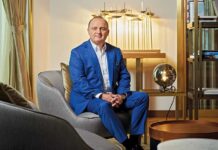


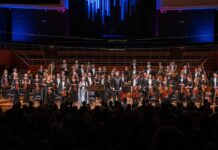
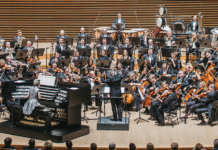







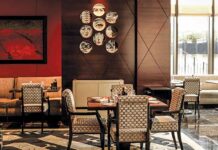
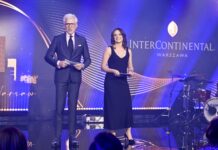

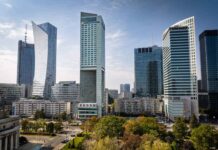

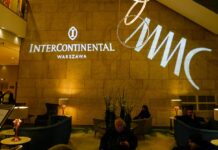
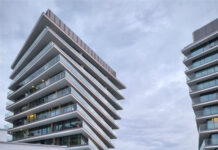
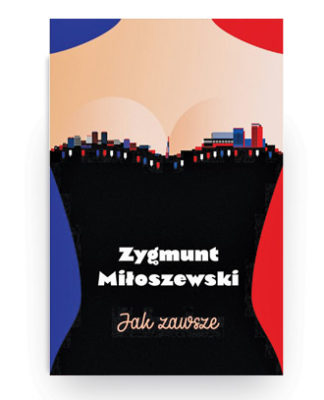

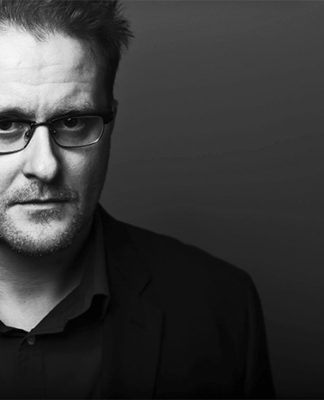
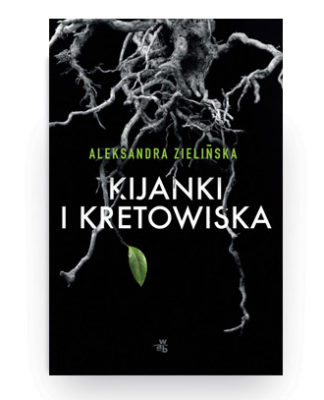
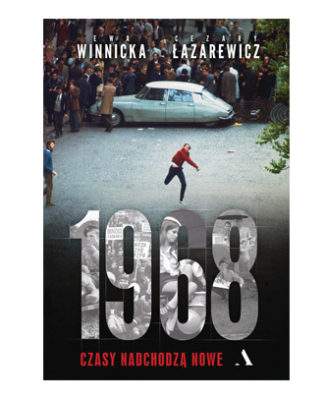
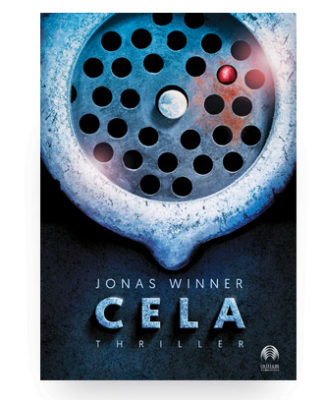
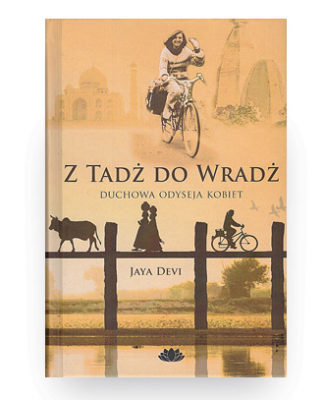
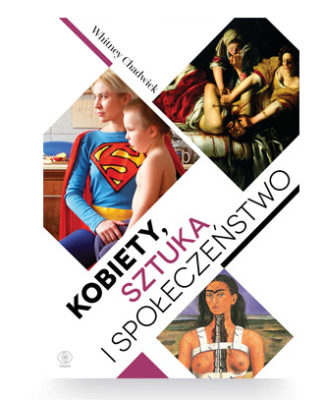
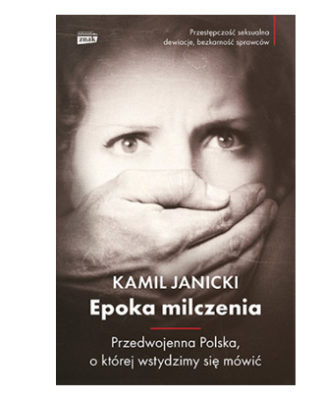
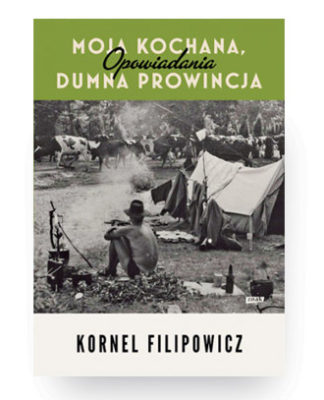
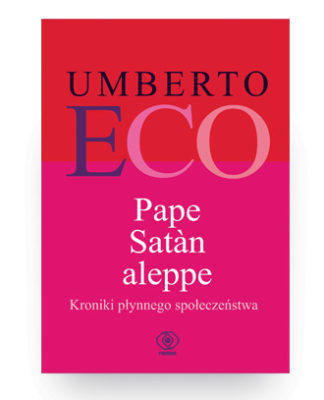
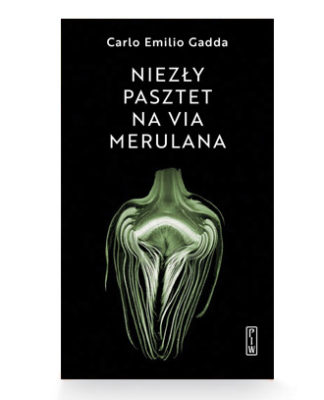
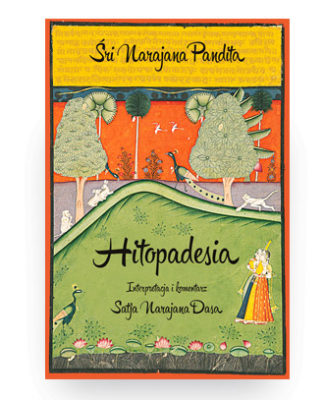
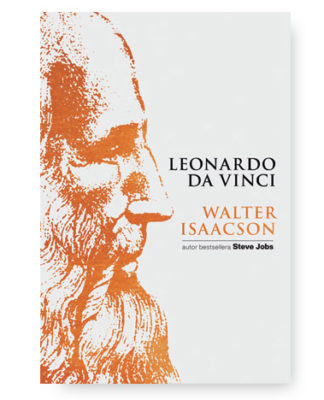
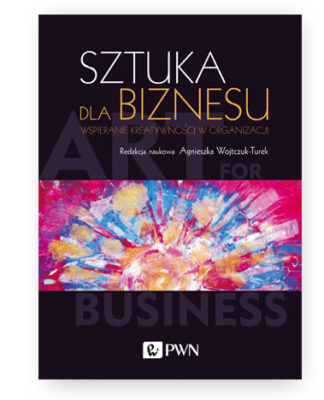
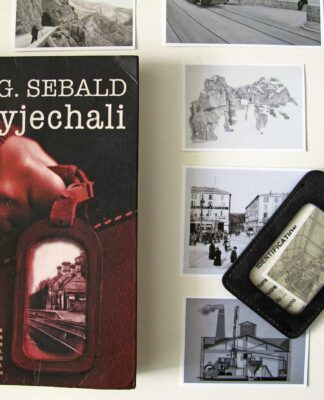
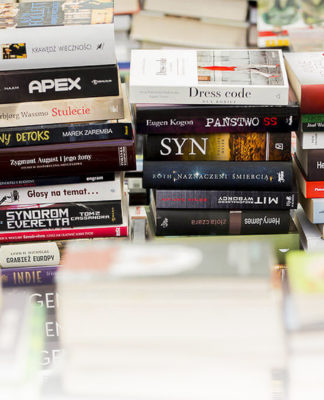
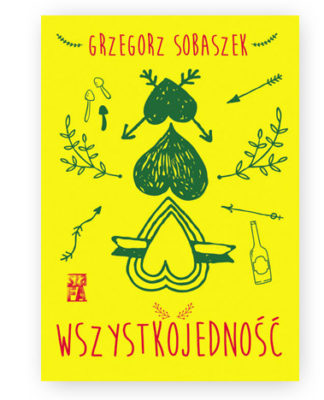
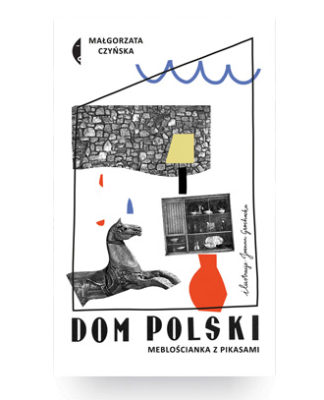
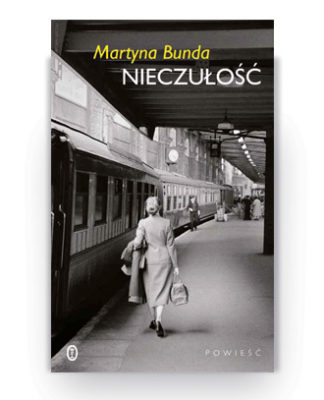
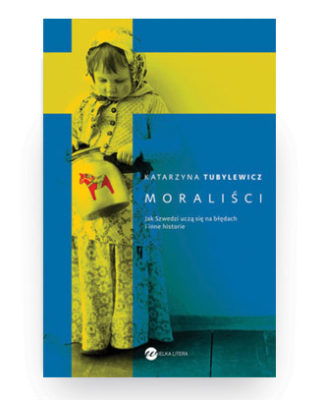
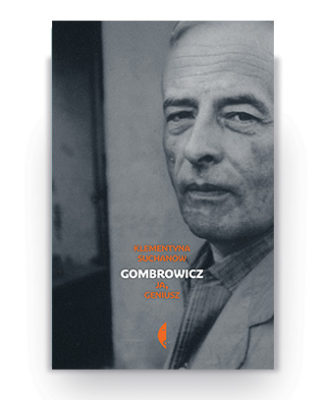
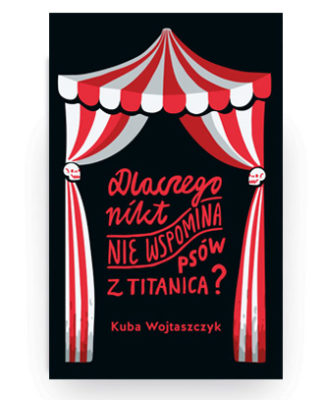
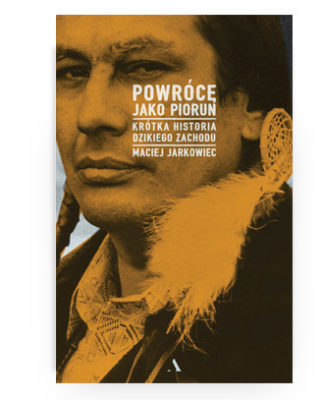
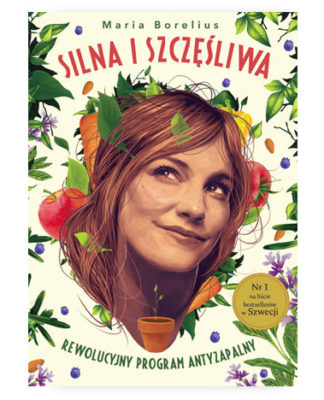
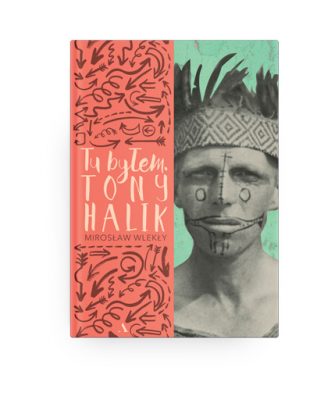
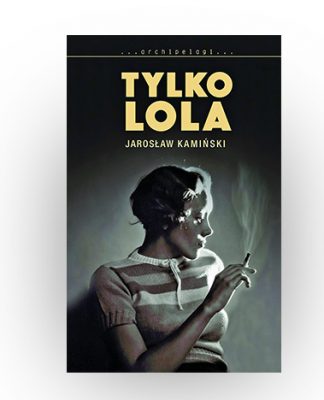
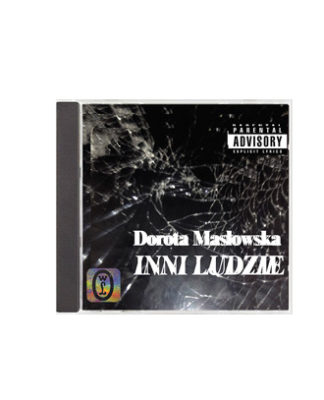
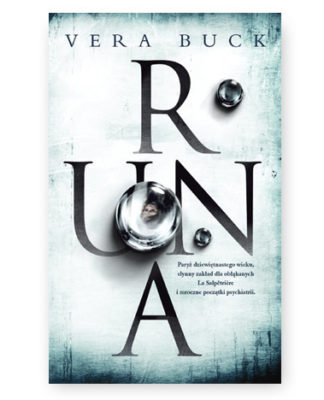
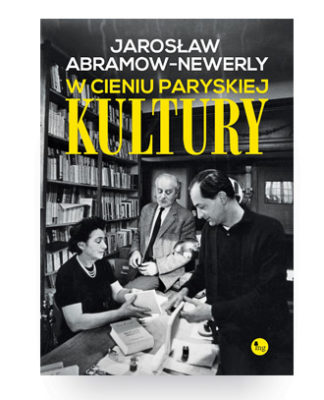
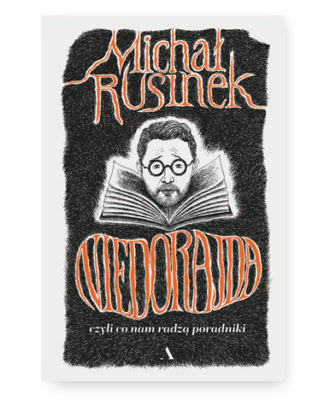
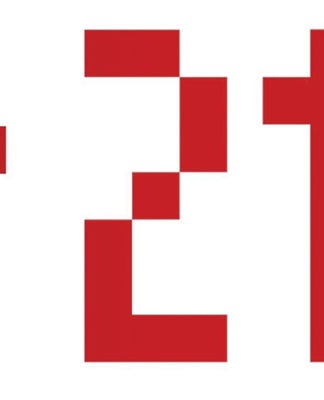
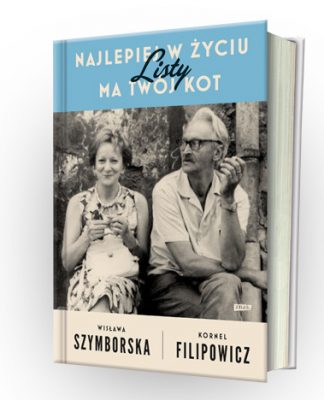
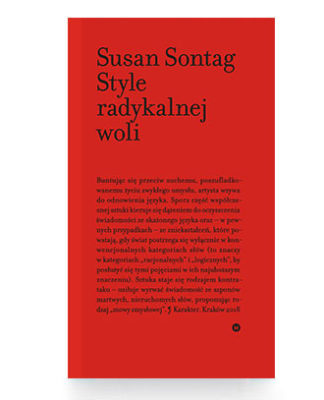
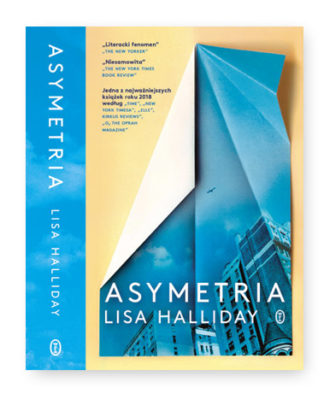
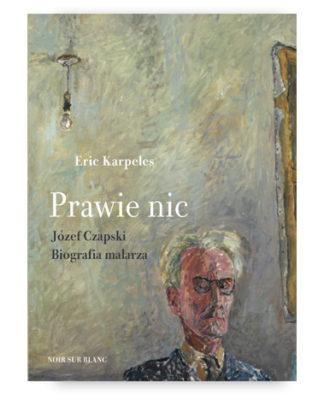
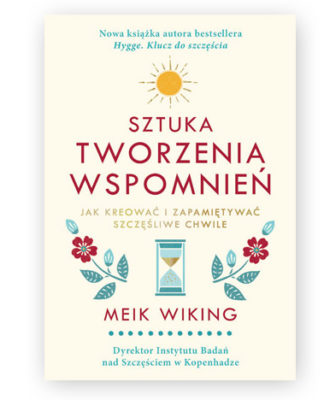
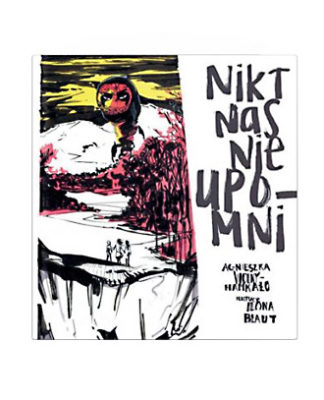
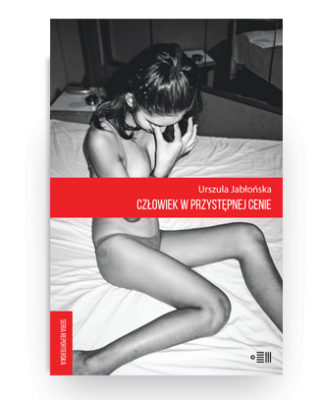
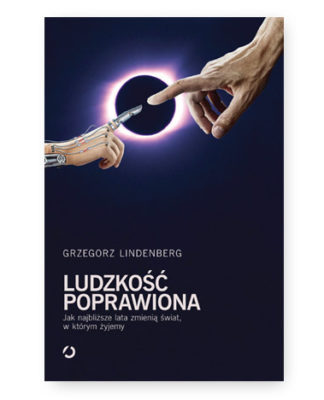
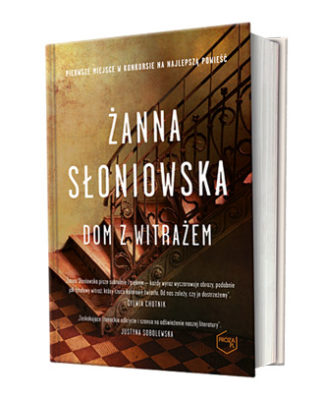
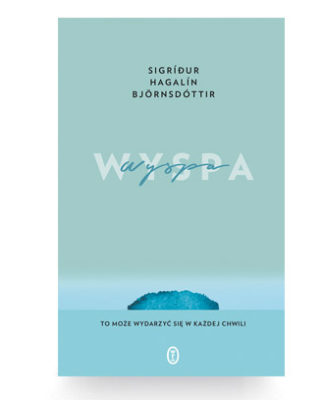
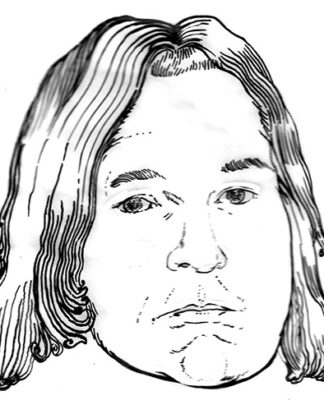

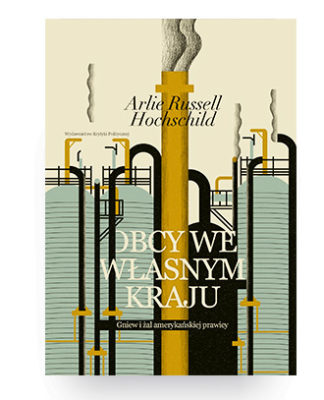
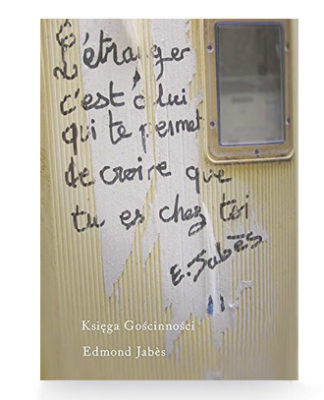

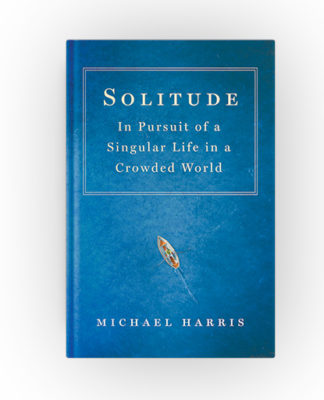
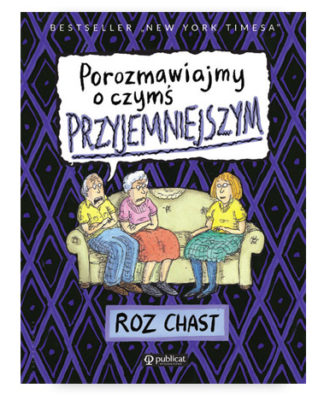
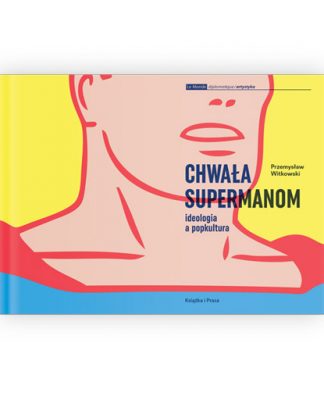
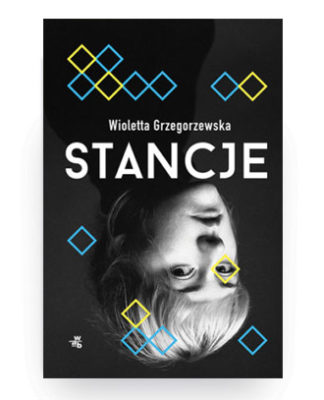
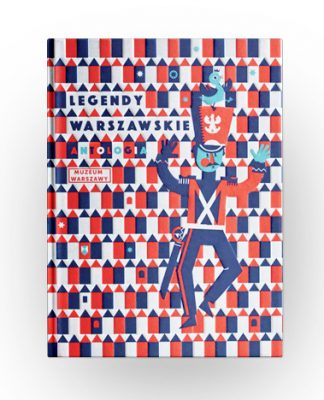
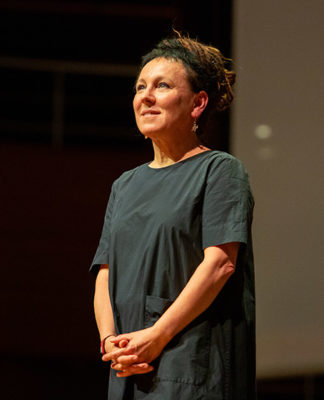
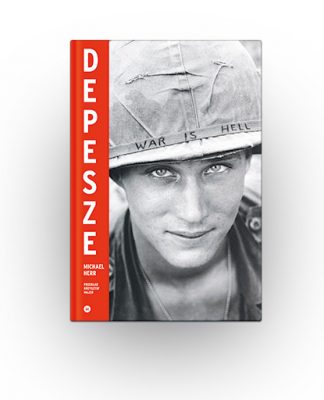
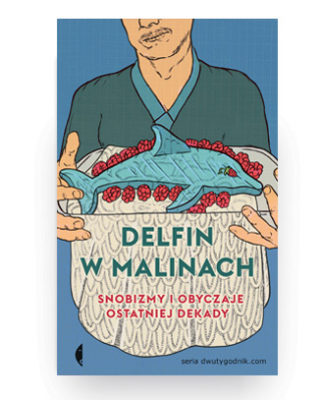
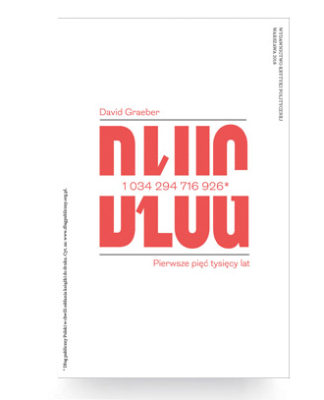
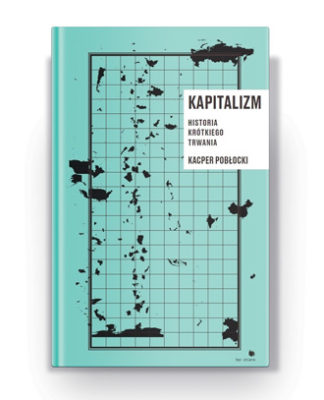
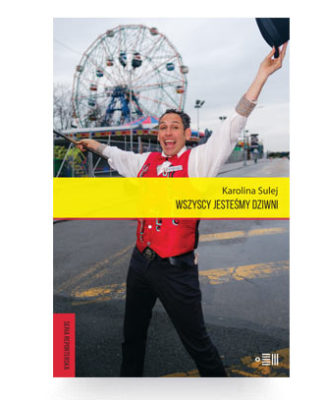
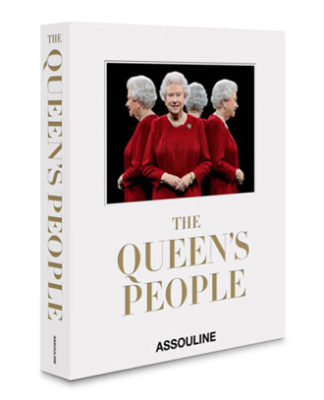
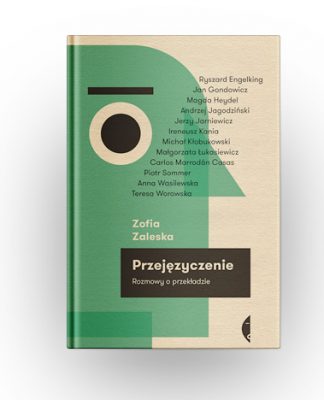
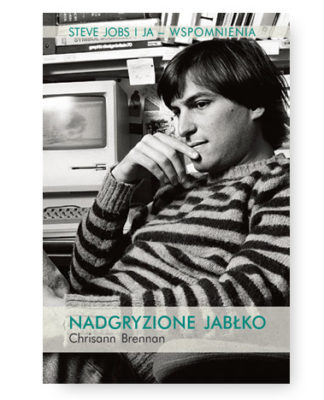
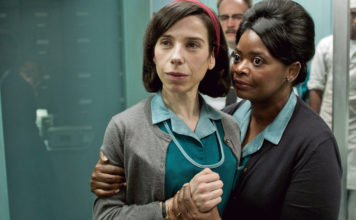
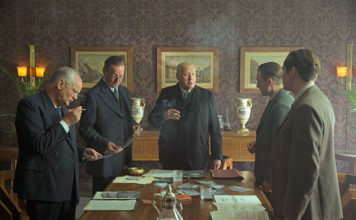
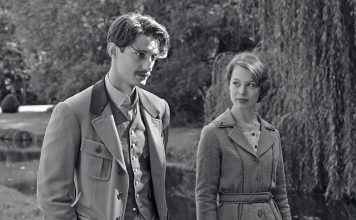
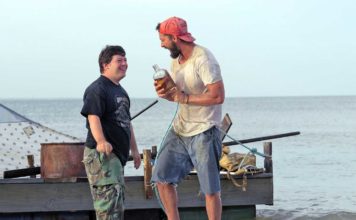

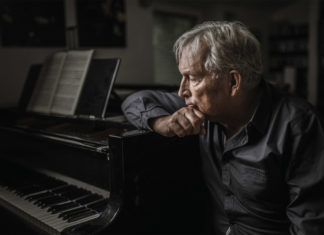
Wydaje się, że owe 5 lat od otwarcia minęło w tym roku, bo przecież miało to miejsce w październiku 2014. Czy pani dyrektor NOSPR nie zna tak ważnej daty w historii instytucji, którą kieruje?